Summary
Short Term Scientific Missions (STSMs) are institutional visits that promote researchers to conduct research, learn new research techniques, use instruments or strategies which are not available in their own institution, develop research skills in another COST country by promoting existing and new networks, fostering collaboration and contributing to the scientific objectives of the COST Innovators Grant (CIG). The CIG aims to build collaborative pathways between researchers, practitioners, policy-makers, children and families, public and private agencies, and general society to create the necessary framework that allows to inform family policies and practices with the underlying goal of ensuring children’s rights and families’ well-being.
The CIG IG18123 has two working groups packages have, one at the national level to create and design the Quality Assurance Protocol (WP1), and one at the international level to develop the Quality Assurance European Guidelines (WP2). STSMs can contribute to the specific related tasks of each working group packages.
Potential applicants that are interested to submit an application should read the STSM guidelines for more details about eligibility, criteria for evaluation, financial support, criteria for reimbursement and how to apply.
Information for STSM guidelines: ![]() ig18123_stsm_guidelines.pdf
ig18123_stsm_guidelines.pdf
Further details can be consulted at the COST Annotated Rules: https://www.cost.eu/funding/how-to-get-funding/documents-guidelines/
Contact
Grant Awarding Coordinator: Ana Pizarro Carmona ( anapizcar@gmail.com )
1st Call is CLOSED
COST CA 18123 – The European Family Support Network. A bottom-up, evidence-based and multidisciplinary approach (EuroFam-Net)
The COST Action CA 18123 launches its first call for Short Term Scientific Missions (STSMs). STSMs are funded as part of the Action CA 18123. The research network itself is funded by COST European Cooperation in Science and Technology.
Short Term Scientific Missions (STSMs) are institutional visits that promote researchers to conduct research, learn new research techniques, use instruments or strategies which are not available in their own institution, develop research skills in another COST country by promoting existing and new networks, fostering collaboration and contributing to the scientific objectives of the Action. The Action aims to build collaborative pathways between researchers, practitioners, policy-makers, children and families, public and private agencies, and general society to create the necessary framework that allows to inform family policies and practices with the underlying goal of ensuring children’s rights and families’ well-being.
The COST Action CA18123 has five working groups. STSMs can contribute to the specific related tasks of the working groups, particularly tasks related to WG 2, 3, and 4.
The first Call covers the grant period from September 2019 until April 2020, and during this period STSMs should be completed.
The call will fund STSMs up to EUR 2000.
Potential applicants that are interested to submit an application should read the STSM guidelines for more details about eligibility, criteria for evaluation, financial support, criteria for reimbursement and how to apply.
Interested applicants should sign in to e-COST profile (or sign up if they do not have a profile) and apply online on the webpage: http://www.cost.eu/STSM
Documents for interested applicants:
![]() STSM Template for Admission Letter
STSM Template for Admission Letter
![]() STSM Template for Complete Proposal
STSM Template for Complete Proposal
![]() STSM Template for Scientific Report
STSM Template for Scientific Report
![]() STSM Template for Webpage Summary
STSM Template for Webpage Summary
Further information on the COST Action CA 18123 and Working Groups are available on the website: https://www.cost.eu/actions/CA18123
2nd Call is CLOSED
COST CA 18123 – The European Family Support Network. A bottom-up, evidence-based and multidisciplinary approach (EuroFam-Net)
The COST Action CA 18123 launches its second call for Short Term Scientific Missions (STSMs). STSMs are funded as part of the Action CA 18123. The research network itself is funded by COST European Cooperation in Science and Technology.
Short Term Scientific Missions (STSMs) are institutional visits that promote researchers to conduct research, learn new research techniques, use instruments or strategies which are not available in their own institution, develop research skills in another COST country by promoting existing and new networks, fostering collaboration and contributing to the scientific objectives of the Action. The Action aims to build collaborative pathways between researchers, practitioners, policy-makers, children and families, public and private agencies, and general society to create the necessary framework that allows to inform family policies and practices with the underlying goal of ensuring children’s rights and families’ well-being.
Second call characteristics:
- The COST Action CA18123 has five Working Groups. STSMs can contribute to the specific related tasks of the working groups, particularly tasks related to WG 2, 3, and 4.
- The second call covers the grant period from September 2020 until April 2021, and during this period STSMs should be completed.
- The call will fund 6 STSMs up to EUR 2000.
Potential applicants that are interested to submit an application should read the ![]() STSM guidelines for more details about eligibility, criteria for evaluation, financial support, criteria for reimbursement and how to apply.
STSM guidelines for more details about eligibility, criteria for evaluation, financial support, criteria for reimbursement and how to apply.
Interested applicants should sign in to e-COST profile (or sign up if they do not have a profile) and apply online on the webpage: http://www.cost.eu/STSM
Documents for interested applicants:
![]() STSM Template for Admission Letter
STSM Template for Admission Letter
![]() STSM Template for Complete Proposal
STSM Template for Complete Proposal
![]() STSM Template for Scientific Report
STSM Template for Scientific Report
![]() STSM Template for Webpage Summary
STSM Template for Webpage Summary
Deadlines:
- Application Period: September 1st - 30th 2020
- Evaluation Period: October 5th - 11th 2020
Contact:
STSM Coordinator: Oriola Hamzallari (oriolahamzallari@gmail.com)
Further information on the COST Action CA 18123 and Working Groups is available on the website: https://www.cost.eu/actions/CA18123
Further details can be consulted at the COST Vademecum: https://www.cost.eu/funding/how-to-get-funding/documents-and-guidelines/
3rd Call is CLOSED
COST CA 18123 – The European Family Support Network. A bottom-up, evidence-based and multidisciplinary approach (EuroFam-Net)
The COST Action CA 18123 launches its third call for Short Term Scientific Missions (STSMs).
Due to the difficult and unpredictable pandemic situation, this third call with give the opportunity to potential applicants to apply whenever there will be a higher chance of movement between European countries.
STSMs are funded as part of the Action CA 18123. The research network itself is funded by COST European Cooperation in Science and Technology.
Short Term Scientific Missions (STSMs) are institutional visits that promote researchers to conduct research, learn new research techniques, use instruments or strategies which are not available in their own institution, develop research skills in another COST country by promoting existing and new networks, fostering collaboration and contributing to the scientific objectives of the Action. The Action aims to build collaborative pathways between researchers, practitioners, policy-makers, children and families, public and private agencies, and general society to create the necessary framework that allows to inform family policies and practices with the underlying goal of ensuring children’s rights and families’ well-being.
Third call characteristics:
- The COST Action CA18123 has five Working Groups. STSMs can contribute to the specific related tasks of the working groups, particularly tasks related to WG 2, 3, and 4.
- The third call covers the grant period from September 2020 until April 2021, and during this period STSMs should be completed.
- The call will fund 5 STSMs up to EUR 2000.
Potential applicants that are interested to submit an application should read the ![]() STSM guidelines for more details about eligibility, criteria for evaluation, financial support, criteria for reimbursement and how to apply.
STSM guidelines for more details about eligibility, criteria for evaluation, financial support, criteria for reimbursement and how to apply.
Interested applicants should sign in to e-COST profile (or sign up if they do not have a profile) and apply online on the webpage: http://www.cost.eu/STSM
Documents for interested applicants:
![]() STSM Template for Admission Letter
STSM Template for Admission Letter
![]() STSM Template for Complete Proposal
STSM Template for Complete Proposal
![]() STSM Template for Scientific Report
STSM Template for Scientific Report
![]() STSM Template for Webpage Summary
STSM Template for Webpage Summary
Deadlines:
- Application Period: November 1st 2020 – 30th September 2021 (The call will be open as long as the budget is available with the last deadline 30th of September 2021)
- Applications will be assessed within 7 days from the submission
Contact:
STSM Coordinator: Oriola Hamzallari (oriolahamzallari@gmail.com)
Further information on the COST Action CA 18123 and Working Groups is available on the website: https://www.cost.eu/actions/CA18123
Further details can be consulted at the COST Vademecum: https://www.cost.eu/funding/how-to-get-funding/documents-and-guidelines/
4th Call is CLOSED
COST CA 18123 – The European Family Support Network. A bottom-up, evidence-based and multidisciplinary approach (EuroFam-Net)
The COST Action CA 18123 launches its fourth call for Short Term Scientific Missions (STSMs).
STSMs are funded as part of the Action CA 18123. The research network itself is funded by COST European Cooperation in Science and Technology.
Short Term Scientific Missions (STSMs) are institutional visits that promote researchers to conduct research, learn new research techniques, use instruments or strategies which are not available in their own institution, develop research skills in another COST country by promoting existing and new networks, fostering collaboration and contributing to the scientific objectives of the Action. The Action aims to build collaborative pathways between researchers, practitioners, policy-makers, children and families, public and private agencies, and general society to create the necessary framework that allows to inform family policies and practices with the underlying goal of ensuring children’s rights and families’ well-being.
Fourth call characteristics:
- The COST Action CA18123 has five Working Groups. STSMs can contribute to the specific related tasks of the working groups, particularly tasks related to WG 2, 3, and 4.
- The call is part of the 3rd Grant Period, which runs from November 2021 until October 2022
- This call will fund STSMs around EUR 1500.
Interested applicants should sign in to e-COST profile (or sign up if they do not have a profile) and apply online on the webpage: http://www.cost.eu/STSM
Documents for interested applicants:
![]() STSM Template for Admission Letter
STSM Template for Admission Letter
![]() STSM Template for Complete Proposal
STSM Template for Complete Proposal
![]() STSM Template for Scientific Report
STSM Template for Scientific Report
![]() STSM Template for Webpage Summary
STSM Template for Webpage Summary
Deadlines:
- The fourth call will be ongoing until February 6th 2022.
- Evaluation Period: Within 7 days of proposal submission
Contact:
STSM Coordinator: Oriola Hamzallari (oriolahamzallari@gmail.com)
Further information on the COST Action CA 18123 and Working Groups is available on the website: https://www.cost.eu/actions/CA18123
Further details can be consulted at the COST annotated rules (see https://www.cost.eu/funding/how-to-get-funding/documents-guidelines/)
5th Call is CLOSED
COST CA 18123 – The European Family Support Network. A bottom-up, evidence-based and multidisciplinary approach (EuroFam-Net)
The COST Action CA 18123 launches its fifth call for Short Term Scientific Missions (STSMs).
STSMs are funded as part of the Action CA 18123. The research network itself is funded by COST European Cooperation in Science and Technology.
Short Term Scientific Missions (STSMs) are institutional visits that promote researchers to conduct research, learn new research techniques, use instruments or strategies which are not available in their own institution, develop research skills in another COST country by promoting existing and new networks, fostering collaboration and contributing to the scientific objectives of the Action. The Action aims to build collaborative pathways between researchers, practitioners, policy-makers, children and families, public and private agencies, and general society to create the necessary framework that allows to inform family policies and practices with the underlying goal of ensuring children’s rights and families’ well-being.
Fifth call characteristics:
- The COST Action CA18123 has five Working Groups. STSMs can contribute to the specific related tasks of the working groups, particularly tasks related to WG 2, 3, and 4.
- The call is part of the 3rd Grant Period, which runs from November 2021 until October 2022
- This call will fund STSMs around EUR 1500.
Interested applicants should sign in to e-COST profile (or sign up if they do not have a profile) and apply online on the webpage: http://www.cost.eu/STSM
Documents for interested applicants:
![]() STSM Template for Admission Letter
STSM Template for Admission Letter
![]() STSM Template for Complete Proposal
STSM Template for Complete Proposal
![]() STSM Template for Scientific Report
STSM Template for Scientific Report
![]() STSM Template for Webpage Summary
STSM Template for Webpage Summary
Deadlines:
- This call will be open on an ongoing basis from 9th February 2022 until further notice.
- Evaluation Period: Within 15 days of proposal submission
Contact:
STSM Coordinator: Oriola Hamzallari (oriolahamzallari@gmail.com)
Further information on the COST Action CA 18123 and Working Groups is available on the website: https://www.cost.eu/actions/CA18123
Further details can be consulted at the COST annotated rules.
COST CA 18123 – The European Family Support Network. A bottom-up, evidence-based and multidisciplinary approach (EuroFam-Net)
The COST Action CA 18123 launches its sixth call for Short-Term Scientific Missions (STSMs).
STSMs are funded as part of Action CA 18123. The research network itself is funded by COST European Cooperation in Science and Technology.
Short Term Scientific Missions (STSMs) are institutional visits that promote researchers to conduct research, learn new research techniques, use instruments or strategies which are not available in their own institution, develop research skills in another COST country by promoting existing and new networks, foster collaboration and contributing to the scientific objectives of the Action. The Action aims to build collaborative pathways between researchers, practitioners, policy-makers, children and families, public and private agencies, and general society to create the necessary framework to inform family policies and practices to ensure children’s rights and well-being.
Sixth call characteristics:
- The COST Action CA18123 has five Working Groups. This call is open for one STSM contributing to the specific related task of Working Group 4 for the family support skills catalogue.
- The call is part of the 4th Grant Period, which runs from November 2022 until September 2023
- This call will fund one STSM of around EUR 1500.
Interested applicants should sign in their e-COST profile (or sign up if they do not have a profile) and apply online on the webpage: http://www.cost.eu/STSM
Documents for interested applicants:
![]() STSM Template for Admission Letter
STSM Template for Admission Letter
![]() STSM Template for Complete Proposal
STSM Template for Complete Proposal
![]() STSM Template for Scientific Report
STSM Template for Scientific Report
![]() STSM Template for Webpage Summary
STSM Template for Webpage Summary
Deadlines:
- The sixth call will be ongoing until February 20th, 2023.
- Evaluation Period: Within 7 days of proposal submission
Contact:
STSM Coordinator: Oriola Hamzallari (oriolahamzallari@gmail.com)
Further information on the COST Action CA 18123 and Working Groups is available on the website: https://www.cost.eu/actions/CA18123
Further details can be consulted at the COST annotated rules (see https://www.cost.eu/funding/how-to-get-funding/documents-guidelines/)
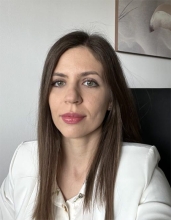
The proposal of Catalogue of family support workforce skills
Name and surname: Sanja Polić
Country: Serbia
E-mail: sanjapolic91@gmail.com
Home institution: University of Belgrade - Faculty of Political Science, Department for Social Policy and Social Work
Host institution: University of Oviedo
Host senior researcher: Raquel-Amaya Martinez Gonzalez
Field of research interest: Family support competencies, professional development, positive parenting
Title: The proposal of Catalogue of family support workforce skills
Dates for the STSM: Saturday, March 18, 2023 to Wednesday, March 29, 2023
Summary of the research: The main aim of this STSM was to the development of proposal of Catalogue of family support workforce skills, which is going to be validated and finalized in the following months after the STSM is finished. During this STSM grant, proposal of the structure and content of the catalogue is developed, and the main skills, necessary knowledge, theoretical approaches, and personal traits for family support were systematized, presented, and described for workers across different professions and settings (social welfare, education, mental health, medicine, law).
For view the files of this STSM you have to log in with your user.
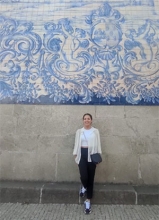
Systematic review and network meta-analysis on online parenting interventions
Name and surname: Burcu Kömürcü Akik
Country: Turkey
E-mail: komurcu@ankara.edu.tr
Home institution: Ankara University
Host institution: Faculty of Psychology and Education Sciences of the University of Porto
Host senior researcher: Ana Catarina Canário
Field of research interest: Parenting; family support
Title: Systematic review and network meta-analysis on online parenting interventions
Dates for the STSM: Saturday, August 21, 2021 to Friday, August 27, 2021
Summary of the research: The purpose of STSM was to identify studies to be included in a systematic review and network meta-analysis on online parenting interventions and to make a sample data extraction for analysis. This work is currently being undertaken by members of the subgroup on the use of information and communication technologies in family support to meet the WG3 objectives of the EurofamNet Action.
For view the files of this STSM you have to log in with your user.

Delphi study on skill standards for family support workforce
Name and surname: Anita Burgund Isakov
Country: Serbia
E-mail: anita.burgund@gmail.com
Home institution: Faculty of political Sciences, Belgrade University
Host institution: Faculty of social sciences and humanities, Algarve University
Host senior researcher: Maria Cristina de Oliveira Salgado Nunes
Field of research interest: Researching a family support workforce skill in order to provide standardization, catalogue and organization of skills in European context
Title: Delphi study on skill standards for family support workforce
Dates for the STSM: Monday, June 27, 2022 to Monday, July 11, 2022
Summary of the research: During the proposed STSM a detail analyses of all the outputs of WG4 had been done. This analysis was an introduction into idea of Delphi study on family support workforce skills. Prior to constructing methodology for Delphi study, a pre-research was done with a group of experts from the network. The workshop was organized on 8th EurofamNet Management Committee Meeting at the University of Algarve, Gambelas Campus, Faculty of Human and Social Sciences, Faro, Portugal, on 28th of June. Workshop started with an introduction activity where participants wrote their name and organization, their expectations from the workshop as well as what do FS workforce skills are from their perspective. Each participant was given a number of sticker paper with a question beyond and was asked to write their associations on it. The expectations from the workshop can be clustered into a couple of broader categories: • Collaboration and sharing. • Exchange of knowledge, views and experiences on family support workforce skills, thus getting a first impression on how to specify more the family support workforce skills.• Learn more about the EuroFam Network and how to help further the Action’s goals. Then, participants were asked a broad question: What kind of skills professionals need to have in order for families to feel and be supported? After each participant finished, all the papers stickers were placed on the white board and the participants tried to group and build consensus on the family support workforce skills. The answers to the question what FS workforce skills are from their perspective can be presented in the following categories:• FS Skills are a co-creation process with families and co-workers with the aim to achieve a desired outcome for families.• FS Skills are a way to understand the changing needs of different families, and based on that understanding, empower families and ensure trust in the professionals.• FS Skills are professional capacities and tools used for support of families in different organizational and institutional contexts.• Some of the participants listed concrete, in their understanding skills, such as empathy, organization, planning skills and responsibility pointing to the fact that there are many skills and a cluster analysis can be useful in defining them. These findings correlate in a way with the findings of the systematic literature review (Zegarac, et al., 2021) where all the skills for family support were divided into qualities of professionals, technical skills and specific knowledge. We could argue that traits and strengths could be considered as qualities of professionals while relationships skills and communication skills could be considered as technical skills. This consensus building resulted with a broad group of organizational skills that are very simple and general and could apply to different settings and not only to family support. This consensus building pre-research helped the aim to propose a main question for the Delphi study with expert group on family support workforce skills. The first-round questionnaire consists of several parts. The first part is on demographic information and consists of following questions: Age, Sex/Gender, Years of experience, Profession, country they work in, and question regarding whether the experts are parents themselves. The second part consists of open-ended questions. The third part is about the hierarchy of skills, and in the last part we will be asking professionals to make a categorization of the skills they named in the previous parts of the questionnaire. This all is with the goal to inform the researchers to make a second-round questionnaire which will consist of more closed questions and Likert scale. The main question of this study is:1. Which skills should be the core of family support workforce? Followed with additional questions that could help to lead the process of answering:1.1. What are the existing set of skills needed for family support workforce? Could you state specifically which skills are important for supporting families? a. Are there differences between professions and about what? b. What is a common link between different professions when it comes to family support workforce skills. c. In your opinion, what are the challenges in applying family support workforce skills in practice? 2. In your opinion, is there a hierarchy in the family support workforce skills? For example, some skills are necessary and general and others are derived from these and/or more complex? Could you propose a hierarchy? 3. How do you imagine ideal family support workforce skills? How are those skills different from what already exists, and what is needed to reach the ideal FS workforce skills? 4. What are the challenges in standardization of family support workforce skills across Europe? 5. Do you think people could be trained to have needed skills? Are there prerogatives for all the skills or some of them, and what are those prerogatives?6. How do you assess your skills in family support? What skill or skills were most significant to you in your work with families? Would you need some support in some of the skills area? Which ones and which kind of support? 7. Out of the skills you named, how would you organize them in following categories: attitudes/values; knowledge; technical skills?
For view the files of this STSM you have to log in with your user.
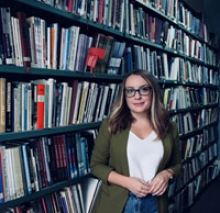
Delphi study on skill standards for family support workforce
Name and surname: Violeta Marković
Country: Serbia
E-mail: violetamarkovic24@gmail.com
Home institution: University of Belgrade Faculty of Political Science, Department for Social Policy and Social Work
Host institution: University of Algarve
Host senior researcher: Maria Cristina de Oliveira Salgado Nunes
Field of research interest: Child protection, family support, migration
Title: Delphi study on skill standards for family support workforce
Dates for the STSM: Monday, June 27, 2022 to Monday, July 11, 2022
Summary of the research: The main aim of this STSM was to build a methodology of the Delphi study for skills of family support workforce, that is going to be implemented in the following months after the STSM is finished. This main aim is achieved and the main outcome being a first-round questionnaire is also achieved (see the full report with the detailed information about the STSM attached in another document). One of the outcomes of this STSM is going to be a paper published in the Serbian journal about the established methodology which is going to be published by Anita Burgund Isakov, Cristina Nunes and myself.
For view the files of this STSM you have to log in with your user.

Online parenting interventions: A systematic review and network meta-analysis
Name and surname: Ana Catarina Canário
Country: Portugal
E-mail: anacanario@fpce.up.pt
Home institution: Faculty of Psychology and Education Sciences of the University of Porto
Host institution: Research Institute of Child Development and Education, University of Amsterdam (The Netherlands)
Host senior researcher: Patty Leijten
Field of research interest: Parenting interventions
Title: Online parenting interventions: A systematic review and network meta-analysis
Dates for the STSM: Sunday, May 15, 2022 to Thursday, May 26, 2022
Summary of the research: The STSM had the purpose of further developing a systematic review and network meta-analysis on online parenting interventions. This work is currently being developed to meet the objectives of the EurofamNet Action’s WG3, by members of the subgroup on the use of information and communication technologies in family support.
For view the files of this STSM you have to log in with your user.

Parenting evaluation tools for evidence-based programs
Name and surname: Oriola Hamzallari
Country: Albania
E-mail: oriolahamzallari@uamd.edu.al
Home institution: Aleksandër Moisiu University
Host institution: Pro Mente Forschung
Host senior researcher: Georg Spiel, Elisabeth Stefanek
Field of research interest: Parenting, child and youth studies, family studies
Title: Parenting evaluation tools for evidence-based programs
Dates for the STSM: Sunday, September 5, 2021 to Saturday, September 11, 2021
Summary of the research: The STSM was a critical tool to advance the work for an academic paper and for the compilation of sound family evaluation tools. During the time spend in the host institution, an intensive work was carried out to identify and to screen out articles for the systematic review paper on parenting evaluation tools used in family interventions. Second, the protocol and the final compilation table of sound evaluation tools was completed.
For view the files of this STSM you have to log in with your user.
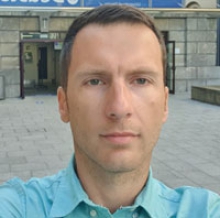
Family policies in southern Europe: contextual development in comparative analysis
Name and surname: Branko Bošković
Country: Montenegro
E-mail: brankoboskovic@gmail.com
Home institution: University of Donja Gorica
Host institution: University of Seville
Host senior researcher: Lucia Jimenez
Field of research interest: Sociology, family policies
Title: Family policies in southern Europe: contextual development in comparative analysis
Dates for the STSM: Sunday, August 29, 2021 to Saturday, September 11, 2021
Summary of the research: The research looked at family policies in Croatia, Montenegro and Spain, with the focus on parental leave policies in these countries. It identified the major trends in three countries, especially in Spain, where these policies have been changing in the recent decade. The research also looked at socio-economic trends, in relation to the impact of the financial crisis effects from 2010 and onwards, on well-being of children and families and on budgetary constraints. The findings will result in the academic paper that will be prepared and published.
For view the files of this STSM you have to log in with your user.
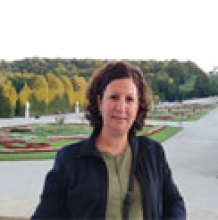
Evaluation tools measuring children’s outcomes in family programs
Name and surname: Ana Uka
Country: Albania
E-mail: auka@beder.edu.al
Home institution: “Beder” University College
Host institution: Pro Mente Forschung
Host senior researcher: Georg Spiel, Elisabeth Stefanek
Field of research interest: Family support, family psychopathology, child developmental and educational outcomes, youth disadvantages
Title: Evaluation tools measuring children’s outcomes in family programs
Dates for the STSM: Sunday, September 5, 2021 to Saturday, September 11, 2021
Summary of the research: During the mission, there have been discussions conducted about the compilation of the Evaluation Tools Table and the protocol that could assist in filling in the table for the children’s outcomes. In every step of the work that has been conducted, it has been discussed with the colleagues from the host institution on how to define and develop further the work. Regarding the review paper, there has been proposed and decided to conduct a systematic review paper based on a narrative approach where all the steps of the data extraction will be accomplished, and all the papers included at the final step of data screening, will be reviewed according to PRISMA guidelines.
For view the files of this STSM you have to log in with your user.
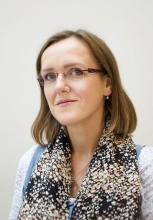
The Programmes Survey Processing
Name and surname: Eliška Kodyšová
Country: Czech Republic
E-mail: eliska.kodysova@aperio.cz
Home institution: Aperio – Healthy Parenting Association
Host institution: University of La Laguna
Host senior researcher: Prof. Maria Josefa Rodrigo
Field of research interest: Quality of family support, families in transition, prevention.
Title: The Programmes Survey Processing
Summary of the research: The Programme Survey brought information on a variety of international, national, regional and local programmes for supporting families. The STSM’s purpose was to assist with the data analysis and presentation, and with identification of good practice in family support programme development and evaluation. At first, the data on the programmes were reviewed and representation of countries has been checked. Furthermore, the method of presenting the data in the programme catalogue was proposed and reviewed, with focus on clarity and controlling for missing values. One of the purposes of the programme survey is to set formative criteria for organizations using family support programmes and determine the good practice for programme evaluation. A method of classification of programmes was proposed, based on previous classification models, such as European Platform for Investing in Children, Blueprints, and Clearinghouse models. We identified the main domains and assigned the appropriate questionnaire items, using a custom-designed spreadsheet tool. As a next step, we established qualification criteria for the three classification levels, discussing the significance of missing values in the context of the Covid pandemics. This included creating new variables from existing questionnaire items, depending on the type of evaluation selected and/or the programme context. During the discussion, the importance of blended-learning or online programmes during the pandemics has been highlighted.
For view the files of this STSM you have to log in with your user.
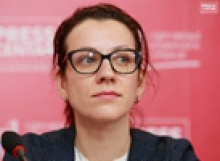
National Structures of Family Support Across Europe
Name and surname: Jelena Jerinic
Country: Serbia
E-mail: jelena.jerinic@pravnifakultet.rs
Home institution: Union University School of Law, Belgrade
Host institution: School of Political Science & Sociology, National University of Ireland, Galway
Host senior researcher: Dr Carmel Devaney
Field of research interest: Constitutional Law, Administrative Law, Local Government Law, Public Policy National Structures of Family Support Across Europe
Title: National Structures of Family Support Across Europe
Dates for the STSM: Monday, January 13, 2020 to Saturday, January 25, 2020
Summary of the research: During my STSM I looked into models or types of national legislative approaches towards institutionalisation of formal family support in European countries. Preliminary conclusions of the research show that family policy, as part of wider policies, is implemented by a plethora of subsidiarized institutions, both in terms of territorial organization and the multiplicity of actors, performing tasks in policy formulation, implementation, monitoring and oversight. However, when filtered through national regulatory frameworks, these common European trends can and do bring diverging effects. Thus, serious concerns can be raised in relation to the need of policy coordination – both vertical and horizontal, as well as equity concerns. If European models of family support were to be established, possible criteria could be the level of (de)centralization and/or variety of actors and their roles.
For view the files of this STSM you have to log in with your user.

Family Support in Legal Instruments
Name and surname: Jelena Arsić
Country: Serbia
E-mail: jelena.arsic@pravnifakultet.rs
Home institution: Union University School of Law, Belgrade
Host institution: School of Political Science & Sociology, National University of Ireland, Galway
Host senior researcher: Dr Carmel Devaney
Field of research interest: Child Rights and Family Support
Title: Family Support in Legal Instruments
Dates for the STSM: Monday, January 13, 2020 to Saturday, January 25, 2020
Summary of the research: Research shows that international legal instruments do not define family, even though family is recognized as the natural unit of society guaranteed with special protection. National legal definitions of family are rare, leaning towards traditional concepts (based on marriage and/or child- parent relationships), while legal notion of family support is ambiguous, hidden within general provisions on special protection of family, and rarely explicitly mentioned - most often as a part of the supervision authority or the duty of states to provide assistance to families. Still, the right to family support undoubtedly stems from various national and international legal instruments, but in order for this right to be properly guaranteed and respected, more comprehensive provisions are needed with primarily constructive and proactive approach in contemporary legal systems.
For view the files of this STSM you have to log in with your user.

Quality standards in Family support programs: Levels of unification and diversity acknowledgement scientific report
Name and surname: Camellia Hancheva
Country: Bulgaria
E-mail: hancheva@phls.uni-sofia.bg
Home institution: Sofia University, St. Kliment Ochridski
Host institution: Örebro University
Host senior researcher: Metin Özdemir, PhD, Associate Professor of Psychology
Field of research interest: Systemic family therapy, relational psychoanalysis, attachment & mentalization studies
Title: Quality standards in Family support programs: Levels of unification and diversity acknowledgement scientific report
Dates for the STSM: Monday, February 17, 2020 to Saturday, February 29, 2020
Summary of the research: There is a considerable discrepancy in the processes of development of both family support services and standards assessing their quality in different European countries. The present research is focussed on how the particular program’s implementation and results are dependent on specific context. 1) In accord with EUROFAM-NET pluralistic approach in relation to the quality standards of FS services the aim of STSM is to initiate the process of development of pluralistic framework for assessment of quality (in particular – the quality of implementation). 2) In accord with specific WG3 research mission, and acknowledging diverse European and national perspectives about quality standards, during this STSM strategies in development and application of QS in assessment of family support services were summarised. 3) Based on review of existing quality standards (QS) the main goal was to develop a list of assessment tolos used for feedback of implementation process. 4)Expected gaps and unavailability of tolos, standards and procedures in regard with the implementation process in some countries is to be addressed and guidelines are to be developed to help professionals and researchers to choose, adapt and/or modify and apply QS in particular contexts.
For view the files of this STSM you have to log in with your user.

Mapping of the skills for family support workforce
Name and surname: Anita Burgund Isakov
Country: Serbia
E-mail: anita.burgund@gmail.com
Home institution: Faculty of Political Sciences, Belgrade University
Host institution: University of Algarve
Host senior researcher: Cristina Nunes
Field of research interest: Social work, family support, social services, children, and youth without parental care
Title: Mapping of the skills for family support workforce
Dates for the STSM: Monday, February 3, 2020 to Thursday, February 13, 2020
Summary of the research: Within an increasing need to create skills standards for family support workforce a research question has been defined: How family support workforce implements skills in their day to day activity? The objective of this systemic review research was to:1) To conceptualize family support workforce skills from different social, cultural and political contexts across world 2) To offer guidelines for standardization of skills for family support workforce. A search of study that included qualitative, quantitative and mix method studies on skills in practice of family support was completed. The following inclusion criteria was considered: a) Families living with their children and families using family support services. Both literature review of family support workforce and research either quantitative, qualitative or mix method have been included. Studies assessing skills of workforce for children living in out of home placement or family support for elderly have been excluded. Various topic appeared in journals from working with families that are facing difficulties to culturally sensitive practice and relationship-based approaches. Studies found are mainly from social work area. b) The dates ranged from 1995 to February 2020. Articles published prior to 1995 were excluded because of the modernization of family support services across world (c) The types of sources and languages included peer-reviewed articles published in scientific journals in English. Once I have extracted all the relevant papers (n=41) I have searched the list of reference in each and found additional 13 papers. In total 54 papers have been extracted from 6.data basis and short summary of studies is being done.
For view the files of this STSM you have to log in with your user.